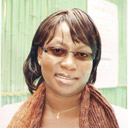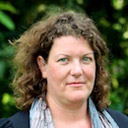
REDD+ is now moving into countries’ implementation arenas after final agreements by parties over its modalities during the 42nd session of the Subsidiary Body for Scientific and Technological Advice in Bonn. Ever since the Bali Action Plan, made at COP13 (2007) countries have sought to overcome the myriad of challenges that come with a mechanism that touches deep into the politics and power structures often linked to forest exploitation and conversion.
What are the bottlenecks for implementation of the REDD+ framework in countries’ complex and diverse realities? How – and what – can we learn from existing experiences to effectively inform the ongoing implementation process? How do we realize the necessary changes in and beyond the forestry sector to get REDD+ and benefit (and cost) sharing actually implemented equitably?
These many questions were at the heart of discussions at a recent gathering of regional policy makers and scientists from Central and West Africa at the 15th Conference of the Congo Basin Forest Partnership (CBFP) held in Yaoundé, Cameroon.
TRANSFORMING BUSINESS AS USUAL
Much of the discussions revolved around “transformational change”; the change that is needed to tackle the bottlenecks created in part, by a business as usual approach of exploiting natural resources and the power of often entrenched interests resistant to change.
States must not only have the technical capacities, but also the political will to identify and tackle the real causes of deforestation. The big issue here is to realize who benefits from the status quo – and hence has no interest in changing anything. These often powerful interests can explain a strong resistance to change.
For example, in Cameroon, new agents of change are joining the REDD+ policy process. Civil society actors are becoming increasingly engaged and demanding change away from old business models. But this is not a quick fix. As our CIFOR Cameroonian colleague Felicien Kengoum said, “the way to go is still very long”.
Lawyer Augustin Mpoyi from Democratic Republic of Congo the NGO CODELT, called for patience with REDD+ and a careful design to allow civil society to participate in the process. He also suggested further reviews of existing legal frameworks, in particular in the context of carbon rights, to avoid flawed benefit sharing as a consequence of flawed rights.
As one participant said so neatly at the knowledge-sharing event, “REDD+ in the DRC is more than money or financing; the country is expected to gain a lot from improved governance and tenure. Even if REDD+ financing stops flowing, the benefits of good governance will stay”.
Benefits of a different nature were part of the insights from Burkina Faso, a rather unique case of REDD+. Adaptation benefits are key in a context where peoples’ livelihoods, often those of the most vulnerable, strongly depend on forest resources. This is the case not only in Burkina Faso but elsewhere in the Sahelian region, and REDD+ will only succeed if adaptation and mitigation efforts are undertaken jointly, as a recent CIFOR study indicated.
EFFECTIVENESS, EFFICIENCY AND EQUITY
Moving from politics, policies and the potential benefits of REDD+, the workshop zoomed in on ‘benefit sharing’ – a term that’s loaded with expectation.
Ongoing reviews of existing benefit sharing mechanisms and governance practices – from experiences with conditional cash transfers to tools used in anti-corruption measures in Indonesia – help us to draw crucial lessons for REDD+ and an understanding of the trade-offs between effectiveness, efficiency and equity. A recurrent issue across most of the reviewed mechanisms is the importance of an inclusive processes for legitimacy.
But the design of equitable and fair benefit sharing mechanisms is only one step, and the complications really start once benefit sharing has to be implemented.
In Cameroon for example, the redistribution mechanism for forest and wildlife royalties has been lauded as having great potential as the model for the entire region. But there are still flaws in the process: benefits trickling down to the local level are rather random and incomplete, as an ongoing CIFOR study has indicated. This “implementation gap” shows that not only regulatory frameworks need to be addressed to make REDD+ and benefit sharing mechanisms work, but also the management aspects along with actors’ behavior.
So where and how to start transformational change for realizing an effective, efficient and equitable REDD+?
At the workshop there was much discussion about how a full and successful implementation of the program is particularly difficult in the Congo Basin.
Participants concluded that it will only become a reality if interests in the current status quo are managed, and state and non-state actors, including communities, are well informed and knowledgeable about “their own REDD+”.
To gain traction across countries and communities REDD+ needs to explicitly support poverty reduction and development goals.
Having the political will to tackle governance issues, and an open mind to question business as usual practices requires brave politics.
As one participant pointed out, “countries and its politicians will need to step up and make their own sacrifices for change to make REDD+ happen”.
Nadia Djenontin is an agricultural economist working with CIFOR as an associate professional officer. Nadia can be contacted at i.djenontin@cgiar.org
Samuel Assembe is a CIFOR scientist based in Cameroon. Samuel can be contacted at s.assembe@cgiar.org
Eugene Chia Loh based in Cameroon, worked for CIFOR on the institutional and governance of climate change in the Congo Basin region. Eugene can be contacted at lohchia@gmail.com
Maria Brockhaus a senior scientist at CIFOR specialising in forestry policy and agricultural economy. Maria can be contacted at m.brockhaus@cgiar.org
Grace Wong is a senior scientist at CIFOR specialising in REDD+ benefits sharing. Grace can be contacted at g.wong@cgiar.org
CIFOR’s research on REDD+ in the Congo Basin is part of the CGIAR Research Program on Forests, Trees and Agroforestry
We want you to share Forests News content, which is licensed under Creative Commons Attribution-NonCommercial-ShareAlike 4.0 International (CC BY-NC-SA 4.0). This means you are free to redistribute our material for non-commercial purposes. All we ask is that you give Forests News appropriate credit and link to the original Forests News content, indicate if changes were made, and distribute your contributions under the same Creative Commons license. You must notify Forests News if you repost, reprint or reuse our materials by contacting forestsnews@cifor-icraf.org.

















